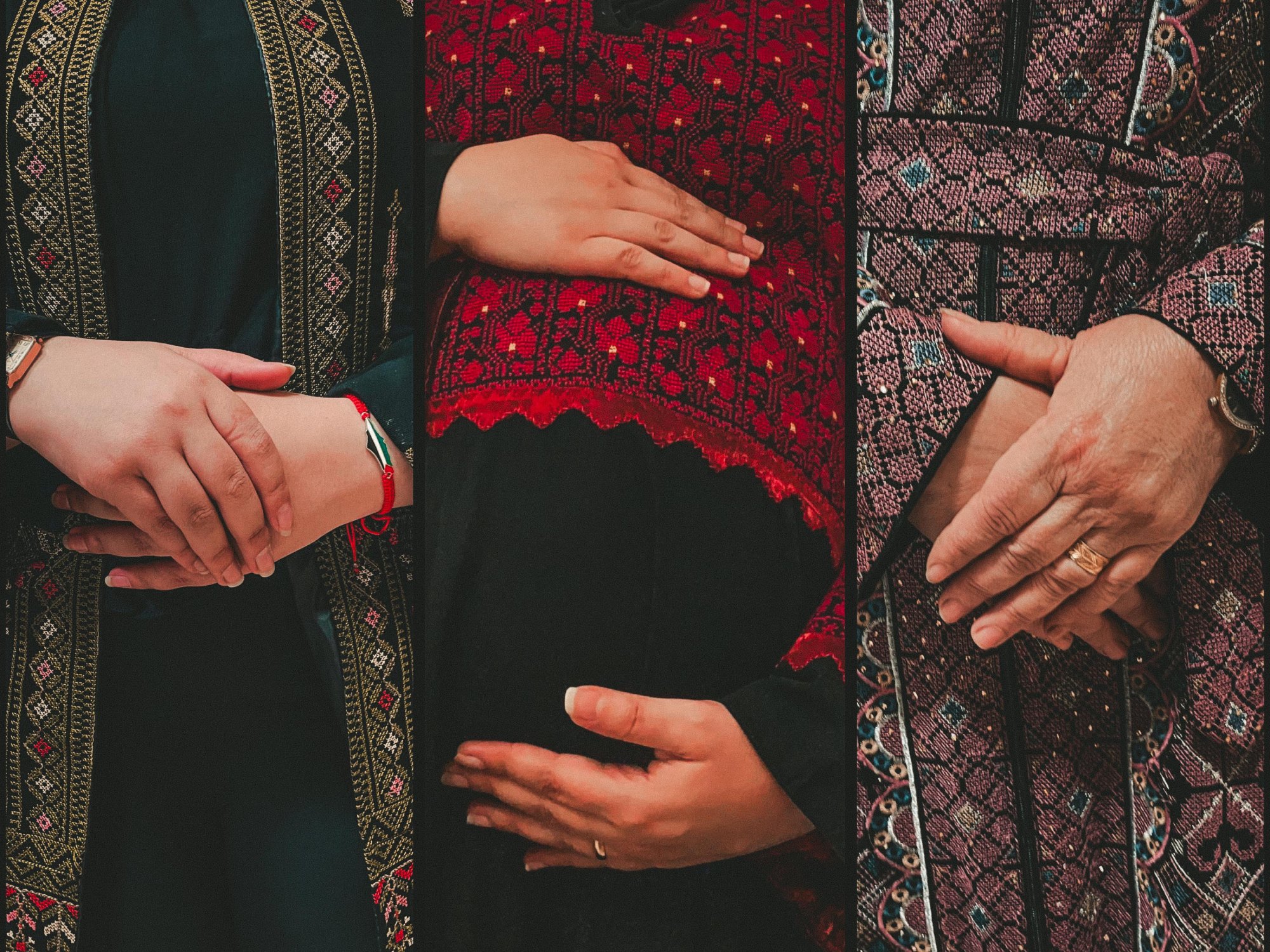It is not easy being a woman in Palestine. There are a few things that automatically determine my gender role. Society puts expectations on me, insists that I meet their fantasies about my existence, and waits for me to fulfill my role to perfection.
One of the most intimidating pressures on women is motherhood. Under typical circumstances, this experience is terrifying and filled with fears and nightmares. What if I am not good enough to become a mother? What if I am not ready for this responsibility? What if I lose myself and have to put my career on hold? What if my body never goes back the way it was?
But above all those concerns is how am I to be a mother under occupation?
For years, the occupation has been trying to erase Palestinian identity, and our relationship to this land, by destroying our humanity and our meaning of life. All that destruction begins at birth.
The occupation is not only targeting lands to confiscate but reshaping motherhood in women’s hearts and souls. Motherhood is always seen as one of the greatest things to do in this life. This experience should bring joy, but this moment is taken from women.
The idea of losing my child to mercenary soldiers consumes my mind around the clock. I am not married and my child is just a thought in my imagination, however, I am already worried about my future child, murdered in cold blood for simply being Palestinian. I have to find a way to live with my anticipatory grief and agony. However, I do not want to give the occupation the satisfaction of breaking my will to resist on this land, so I have to always appear strong and brave.
I worry that my child may be taken from my lap to the shell of a dark dungeon, where they can never see the light of life and hope again. As a mother I would be in constant wonder about his status. I wonder if his meals would turn from Maklouba (a Palestinian traditional dish) to rotten food crumbs. Or his last memory of a good smell is the jasmine tree in our door.
I fear my future child may lose his dreams to be whatever he wants to be. Or that his potential arrests last for 20 years of stolen youth and there is not enough time to achieve his dreams. In this scenario, I worry that after 20 years in prison, I may not recognize my own child. Years of disparity and abuse will change you into an unrecognisable human. I cannot fathom the idea of not recognising my own flesh and blood anymore. Or the other way around. Perhaps my own child will not recognise me anymore because I spent my last years struggling with his arrest. I might spend my whole life waiting for him to be released, waiting to hear any news about him, waiting to see him grow before my eyes, waiting to hear his voice, waiting to tell him stories about our family, waiting to cook his favorite meal, waiting for him to come back home. As I wait, I hold the guilt of living my life without him; an incomplete joy in the life of any mother.
The fear continues. I imagine myself arrested, handcuffed and blindfolded in front of my beloved children. Then I envision additional arrest extensions and the anxiety of knowing my children are without their mother. My soul would be wrecked to even think that I am no longer able to raise them or hold them. Why does a mother have to endure this separation?
What haunts me the most is taking my last breath after being shot in the head, leaving this world without a proper goodbye to my children.
We hear a lot of devastating stories every single day about these scenarios, and I am not sure if my journey would be any different. These scenarios I make up in my mind are real events, not some tragic work of fiction. These are the lived experiences of Palestinians under the occupation.
The question remains here: do I give the occupation what they expect me to? Do I let them achieve their goals through me – to erase our existence, to make us lose faith in resistance, and to strip us out of our dreams and our identity as human beings and as Palestinians? Should I lose a part of myself just because I’m afraid?
Or should I just simply live my own life without considering the occupation in the first place, to resist because a colonial entity shouldn’t be the one controlling my choices? Because I was also raised to believe my rootedness to this land is to live life with dignity and honor. But then again, would it be unfair to my children to grow up in such a terrifying world that is full of injustice and so far from humanity?
I don’t know the right answer, and I don’t know if I ever will. But what I know for a certain is that I am not alone in this, I have my people with me. I find comfort sharing these concerns with strong ambitious Palestinian women because they struggle with them too.




